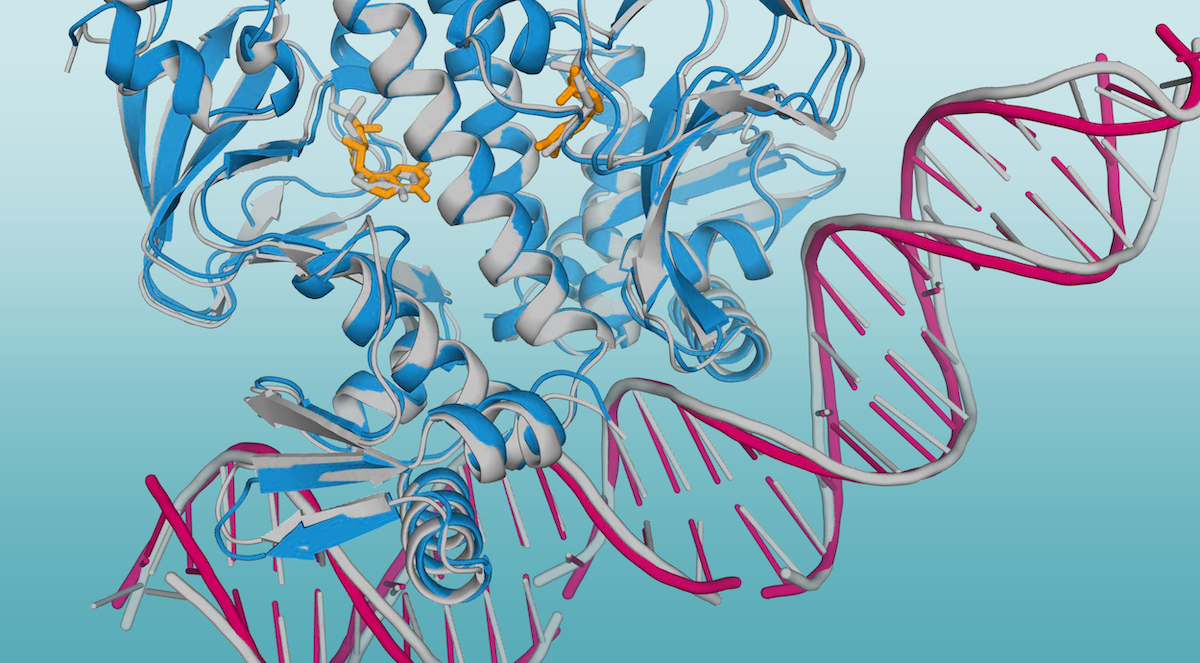As society embraces new technologies and scientific advancements, scientists must navigate the complex balance of exchanging ideas and preventing misinformation and polarization within public audiences.
Bryce Johnson, a computer sciences graduate student in the lab of Morgridge computation biologist Anthony Gitter, put this idea into practice through an opinion piece about the artificial intelligence software AlphaFold 3 in the digital magazine, Undark.
 Bryce Johnson
Bryce Johnson
AlphaFold is an AI model developed by Google DeepMind, a private research subsidiary of Google. The most recent model, AlphaFold 3, was published in Nature.
“This model claims it can predict the structure of proteins and their interaction with DNA, RNA, and other types of biological molecules,” says Johnson. “The ability to know how these molecules interact with a protein can be really useful to revolutionize drug discovery.”
This technology could be useful for other biotechnology applications beyond drug discovery, including solutions to mitigate the effects of climate change — a topic that inspires Johnson’s passion for science communication and policy.
Johnson appreciates Google DeepMind’s decision to publish their model in a reputable scientific journal. But he takes issue with how the Nature editors seemingly allowed the AlphaFold 3 model to be described without adhering to the journal’s usual open-source standards.
“Their mission is to serve scientists in publishing academic material, so it didn’t feel like they were staying true to their mission,” he says. “It felt like this was more about a promotion for a for-profit company.”
Johnson’s opinion piece grew out of an assignment for one of his classes with the UW–Madison Department of Life Sciences Communication (LSC). As the AlphaFold 3 model went public, he pitched his story to several publications that he hoped would be willing to work with PhD candidates.
Within a day, editors from Undark replied and commissioned his piece, which Johnson said reaffirmed that his piece fit the criteria for news value — timely, relevant with a clear conflict and argument.
He worked with Undark editors for about a month, as he was encouraged to take a step back and make sure he represented viewpoints from all stakeholders. This applied one of his major takeaways from his LSC class: Before you speak, listen.
“Initially the piece stood as a demand that DeepMind release their code,” Johnson explains. “I had to address a lot of new and incoming information which changed the nature of my opinion piece from less of a demand to more of a brief of the situation itself with an assessment of my own.”
Johnson is grateful for research mentor Gitter, as well as being in a working environment passionate about the public implications of science. The Morgridge Institute encourages all researchers to assess their relationships with science and society, with a commitment to programs that advance science communication and community engagement.
“This is a perfect example of the Morgridge mission of having scientists communicate to a broader audience about important issues,” Gitter says.
Johnson hopes his experiences will one day lead to a career in science policy. Read his full opinion piece at Undark.




